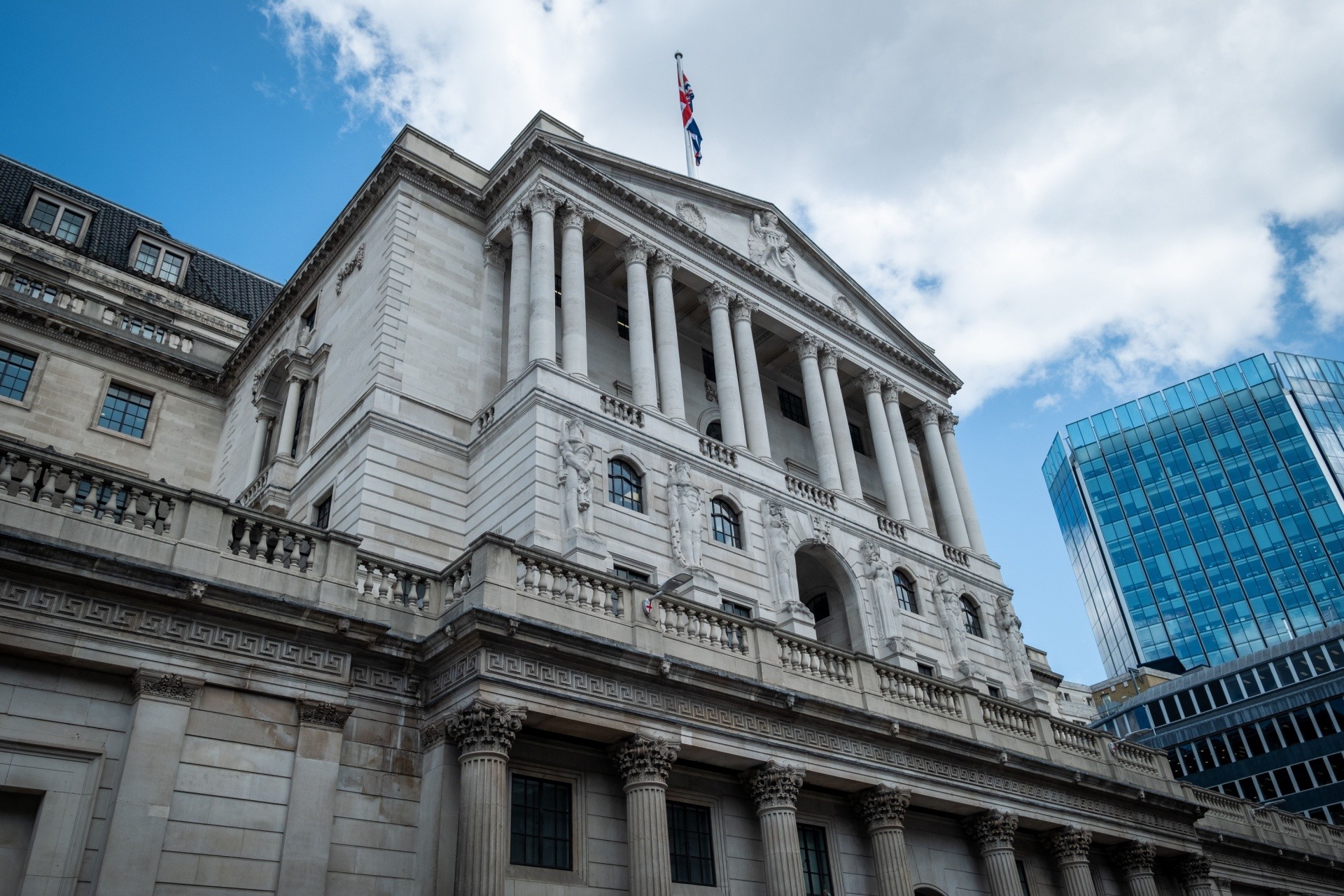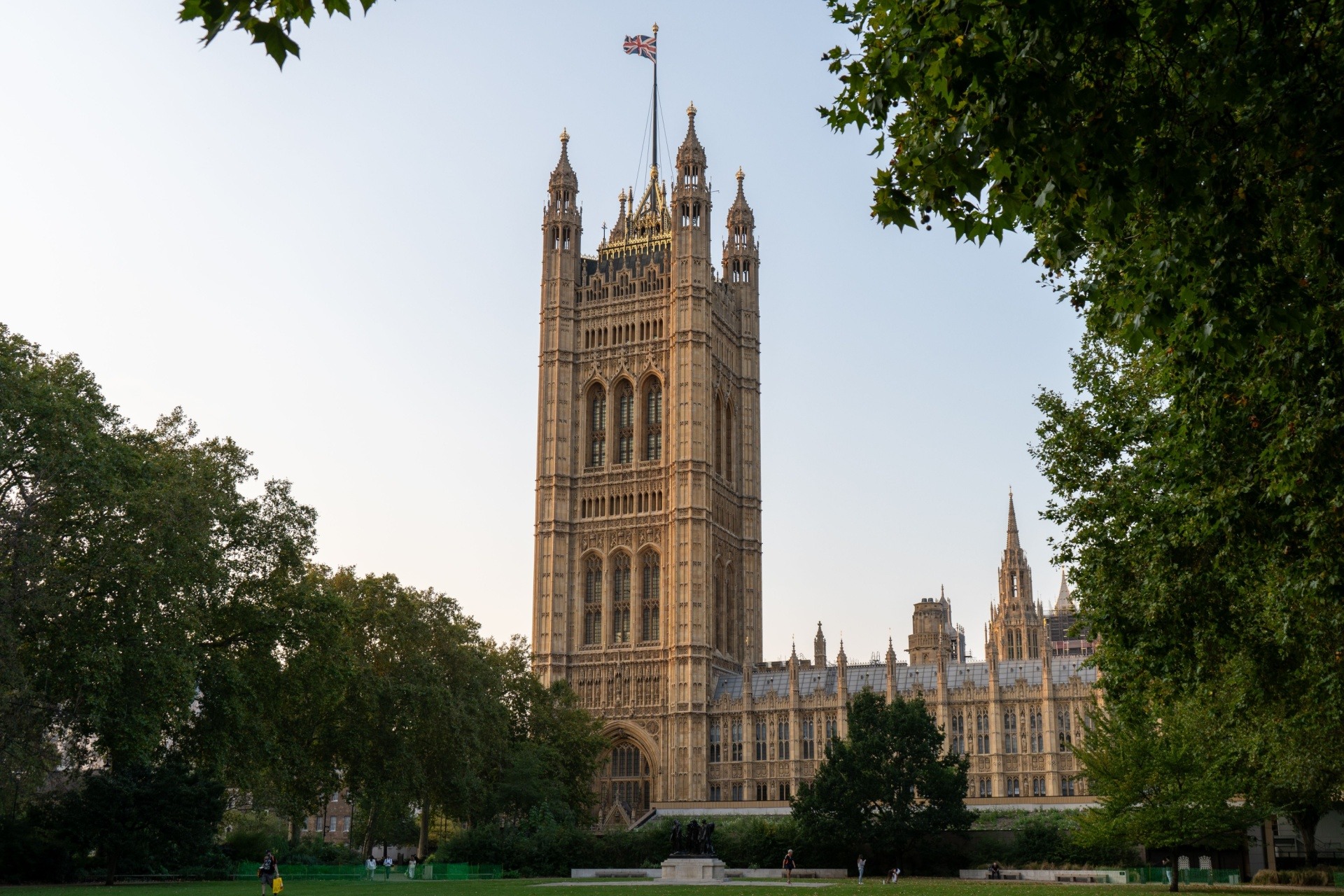Weekly Briefing: Tax Hikes For Millions, SME lending, UK Housing Wealth & Large UK Investment
This week’s briefing highlights four key stories: the rising number of higher-rate taxpayers, the tough lending market facing SMEs, BlackRock’s strategic UK investments, and how 56% of homeowner wealth is concentrated in just one small demographic.
As with previous weeks, let’s take a quick look across the ocean at the state of US stocks. As of writing, the S&P 500 sits at $5,530—still down around 10% from its all-time high of $6,147.43. Should investors still be worried?
Back in the UK, read on to explore some of the latest developments shaping the economy and investment landscape.
SME Lending Drought Threatens Growth Ambitions
- Over the past four decades, there's been a dramatic drop in traditional bank lending to SMEs, with Allica Bank estimating a £90 billion shortfall compared to historic norms. Today’s finance landscape prioritises low-risk, property-backed lending, leaving service-based businesses, many without assets, locked out of access to growth capital.
- One stark example is the collapse of overdraft lending, which has plummeted from 31% of SME finance in 1998 to just 5% today. Instead, lenders have shifted focus toward secured loans, heavily favouring firms with tangible assets like real estate, which doesn’t align with the asset-light, digital nature of modern SMEs.
- The rise of non-bank lenders has helped patch the gap, but a £65 billion credit shortfall still persists. Banks are increasingly risk-averse, discouraged by thin margins and regulations that favour lending against hard collateral rather than business ideas or intellectual property.
- Many SMEs are now choosing slower growth over taking on finance, fearing debt more than stagnation. A recent Bank of England survey found 77% of SMEs would rather scale down their ambitions than borrow, highlighting the depth of the issue.
- Allica’s CEO, Richard Davies, says the structure of SME finance is fundamentally flawed, particularly when compared to the lending environment of the '80s and '90s. He’s calling on the Bank of England to adapt regulations to make it easier for challenger banks and newer lenders to fill the void.
- “There is a very low rate of SMEs taking ‘productive credit’ to invest in improving productivity and growing their business. Established SMEs are the critical force in driving the next wave of economic renewal.”
- Judith Lancaster of Finance Nation, a SME lending broker part of the GCV portfolio, stressed that “SME finance needs to be brought into the 21st Century digital world that small businesses currently cannot access, but which we as consumers take for granted”.
Fiscal Drag Quietly Hikes Taxes for Millions
- A topic that we’ve spoken about in depth recently, when the government froze income tax thresholds in 2021, it quietly set the stage for one of the most impactful tax hikes in recent history. As inflation and wages rose, so too did the number of people pushed into higher tax bands, without any change in tax rates themselves.
- Between 2021 and 2025, the number of people paying the 40% higher rate of tax jumped from 4.43 million to 6.31 million. This effect—known as fiscal drag—has pulled nearly two million extra taxpayers into higher brackets purely because of rising salaries, not policy changes.
- In 2021, a high earner made about £50,201, just under the higher rate threshold. But as that income climbed to £61,041, a much larger portion of it became taxable at 40%. By 2025, Rift estimates 21% of high earners' incomes will fall into that bracket, up from around 15% just a few years ago.
- The freeze in thresholds was first introduced by Rishi Sunak and extended by Jeremy Hunt, with the current Chancellor, Rachel Reeves, keeping the policy in place until 2028. This means the pressure on middle-income earners is likely to increase in the years ahead.
- What makes fiscal drag more painful is its knock-on effect on benefits. Child benefit eligibility, for instance, can disappear if just one earner in a household crosses the threshold, even if the overall household income hasn’t really changed in real terms.
- It's for exactly this reason that tax-efficient investment schemes like EIS and SEIS have grown in popularity and will likely continue to as rising tax bills push more people to seek relief. Offering up to 50% income tax relief, among other benefits, it’s easy to see why these schemes appeal to investors, especially high earners.
- Download our free guide to reducing your income tax bill as a high earner to discover the main methods available to UK investors.
US Stock Market Insight
- For those focused on the short term, caution is still advised. Volatility remains, and the potential for new announcements is ever looming. But for those with a longer-term outlook, this may be one of those moments we look back on as the index breaks new highs.
- Whether or not certain stocks offer good value at today’s prices is up to the individual. But with many still more than 30% below recent highs, this could well be a brilliant window to buy in, especially with a longer-term focus in mind.
Baby Boomers Dominate UK Housing Wealth
- Over-60s now own nearly £2.9 trillion in net housing wealth—an extraordinary concentration of equity that reflects a generation who largely bought at the right time, paid off mortgages, and saw property values soar. In contrast, younger generations are currently facing a struggle to climb the property ladder at all, even in ‘cheaper’ areas of the uk.
- Older homeowners now make up 56% of the UK’s owner-occupier housing wealth. Over-75s alone account for nearly a quarter. Meanwhile, under-35s collectively hold just 6%, despite facing the steepest property prices in history.
- While many ‘boomers’ are technically “mortgage-free,” they still hold £60 billion in borrowing, just 2% of their homes’ total value. By comparison, under-35s owe £300 billion on homes worth just £600 billion, meaning half of their property wealth is still tied up in debt.
- One of the big issues seems to be movement: older homeowners tend to stay put. Despite their houses being potentially too large for their current needs, fewer than 2% of over-60s move home each year. Many lack incentives to downsize, with retirement housing and tax policies doing little to nudge them toward change.
- Savills suggests that freeing up this locked equity, through better retirement housing and downsizing incentives, could open up the market for younger buyers and support more intergenerational wealth transfer. But so far, policy doesn't seem to have caught up with demographics.
BlackRock Bets Big on British Assets
- Global investment giant BlackRock is snapping up UK assets across the board, citing renewed optimism in Britain’s growth trajectory.
- BlackRock—which manages $11.6 trillion globally—has about £570 billion invested in UK assets already, including shares, bonds, and infrastructure like Gatwick Airport. Now, they’re buying even more, signalling a vote of confidence in the country’s prospects.
- In particular, he highlighted how undervalued many UK assets have become. Stocks in banks like NatWest and Lloyds, for example, have rebounded strongly from their lows, which Fink sees as proof that confidence is returning.
- While he acknowledged complaints from UK business leaders about costs like National Insurance, Fink said the broader picture remains encouraging, especially when it comes to opportunities in infrastructure and long-term investment.
- “There are so many fundamentally strong attributes about the UK and Europe and they’ve been so smothered by over-regulation, by too much control,” Fink said. “I have more confidence in the UK economy today than I did a year ago.”
Final Note
This week’s data paints a complex picture for many in the UK, though it comes with long-term optimism from the world’s largest investment firm.
For SMEs, the situation is tough. Rising wages, input costs, and limited access to finance create a difficult environment for investment. Although it’s a challenging market to break into, Finance Nation aims to help. With access to a wide range of lenders, they’re on a mission to help UK businesses grow and thrive.
Looking more broadly, hidden tax rises will affect many. Those earning just over £100,000 may now face a reduced income tax allowance, which disappears entirely at £125,140. For these individuals, saving tax in the 2025/26 financial year will play a bigger role in their investment strategy.
While the UK faces pressure from multiple angles, seeing a firm of BlackRock’s scale back the UK is a reassuring signal.
%20(3)%20(2).jpg)







